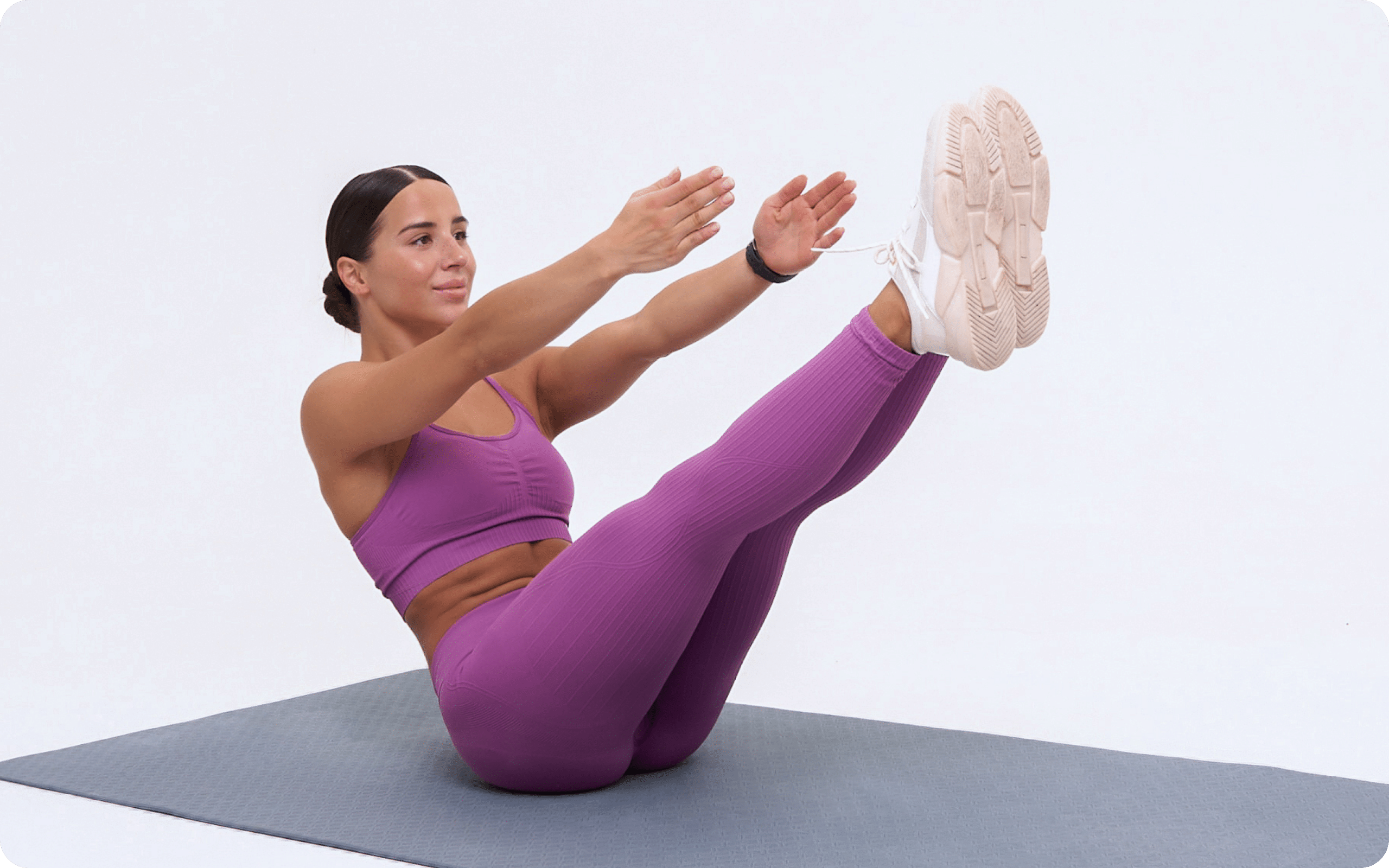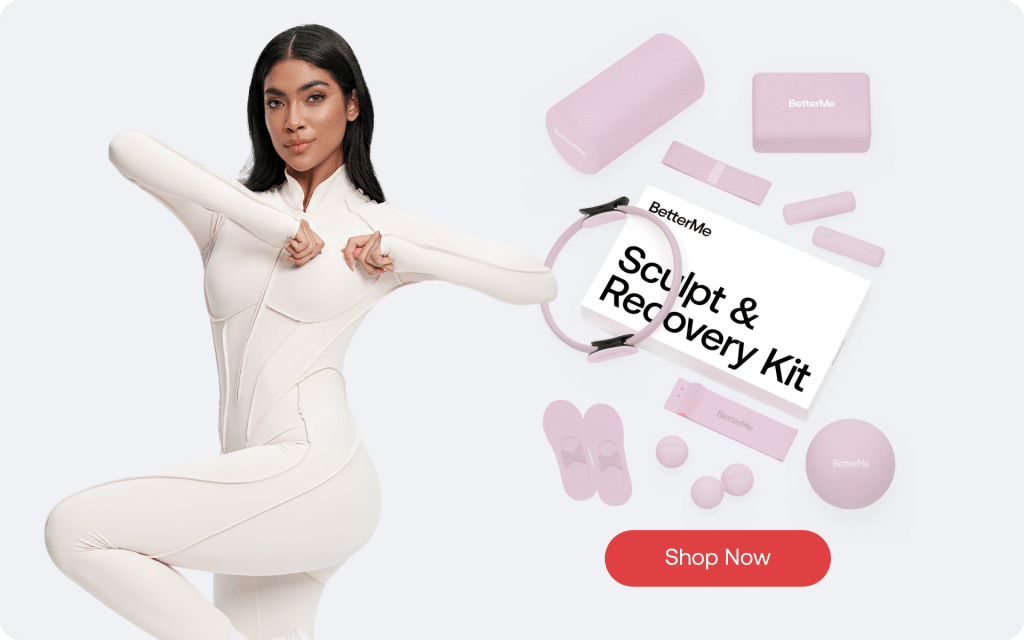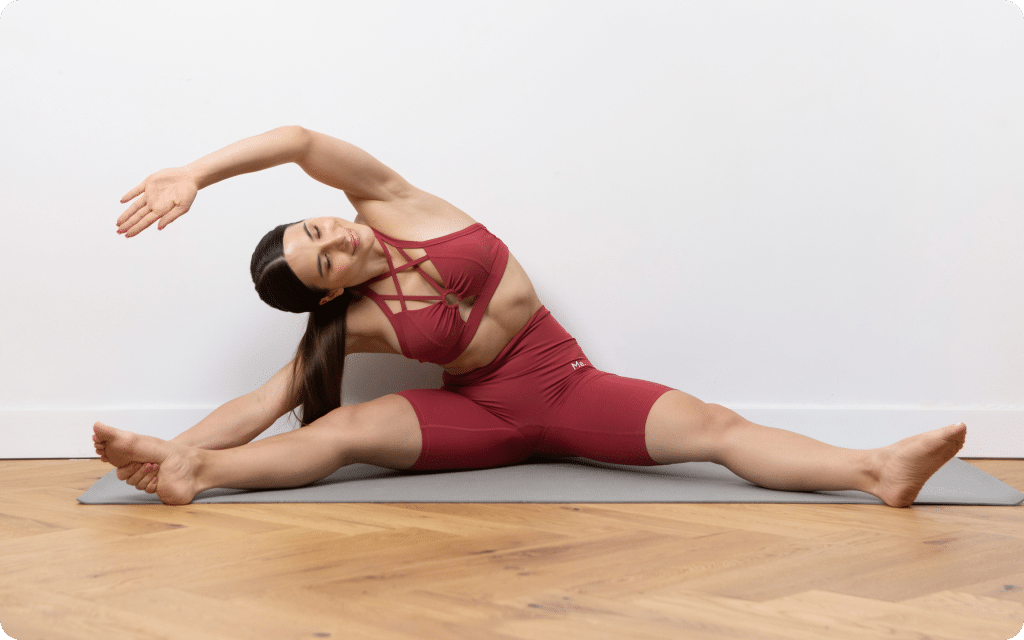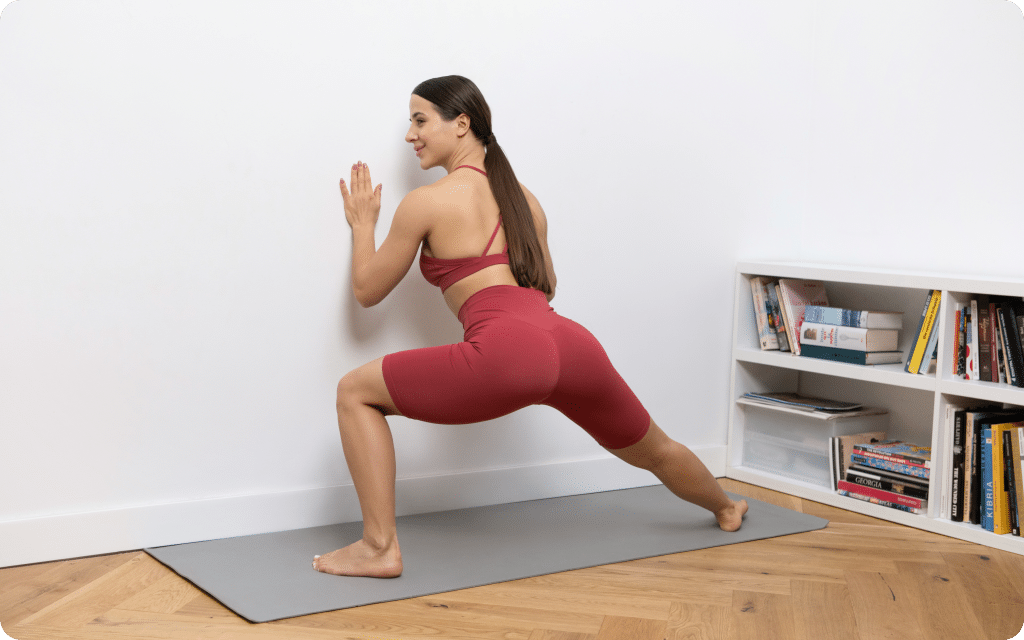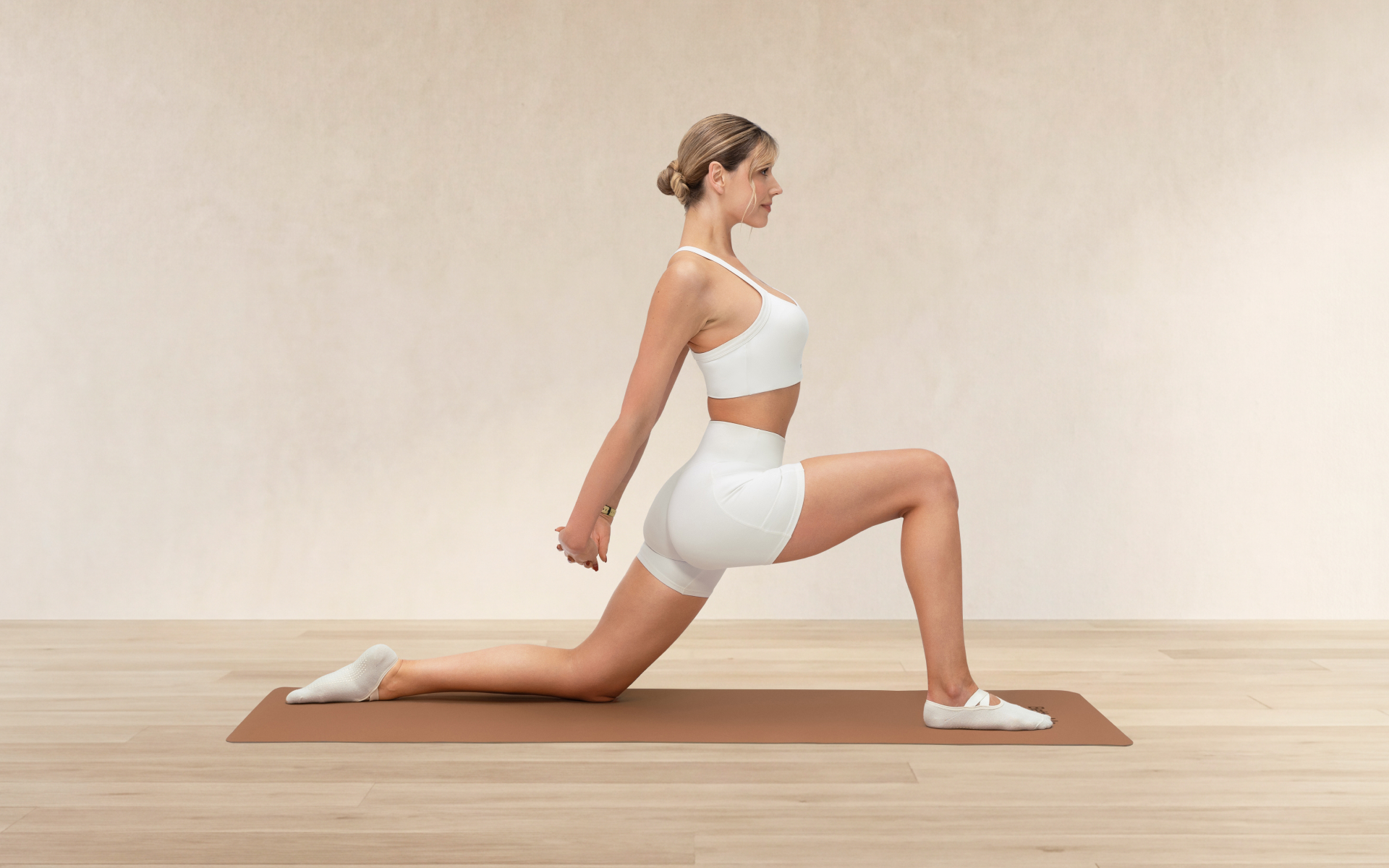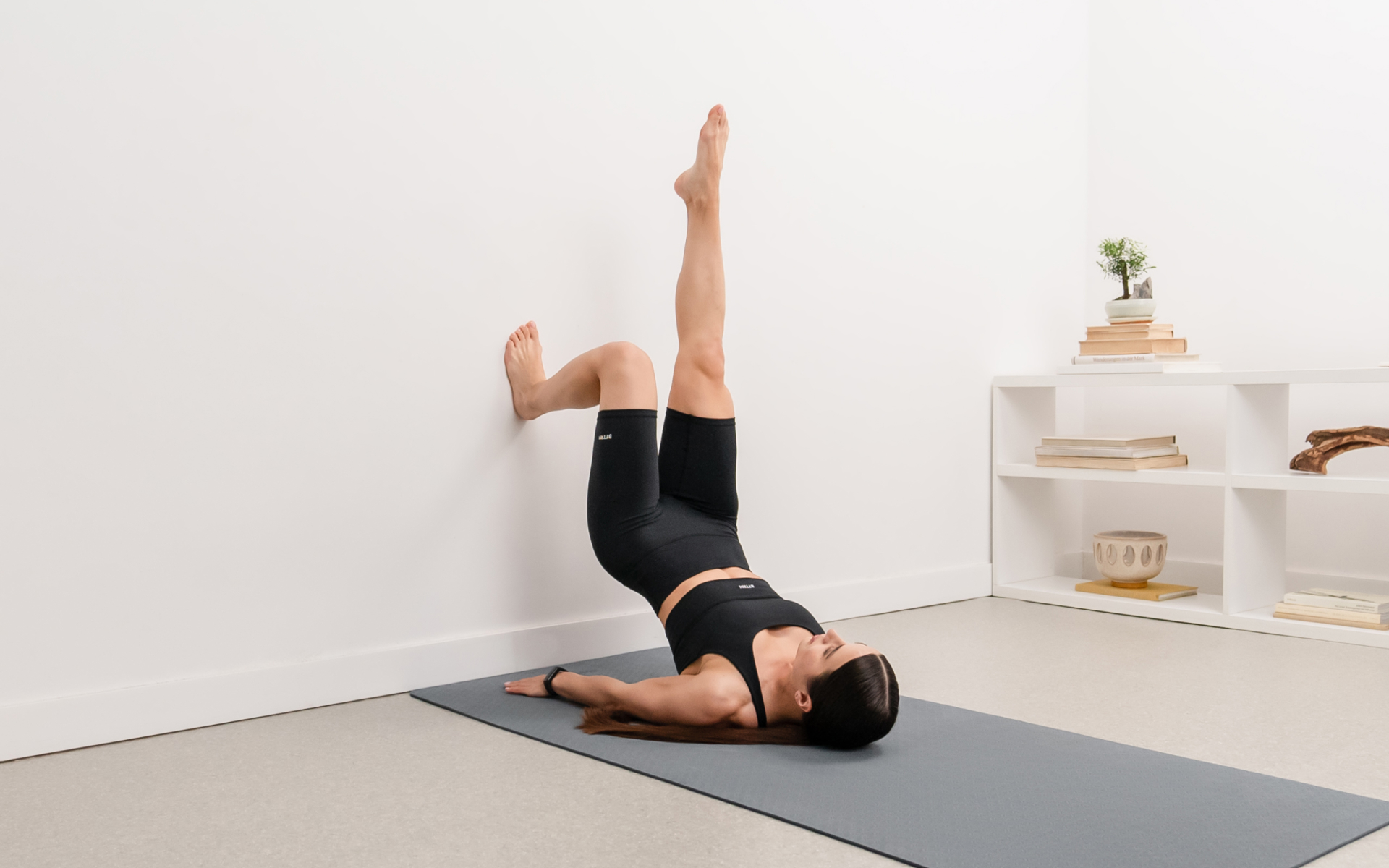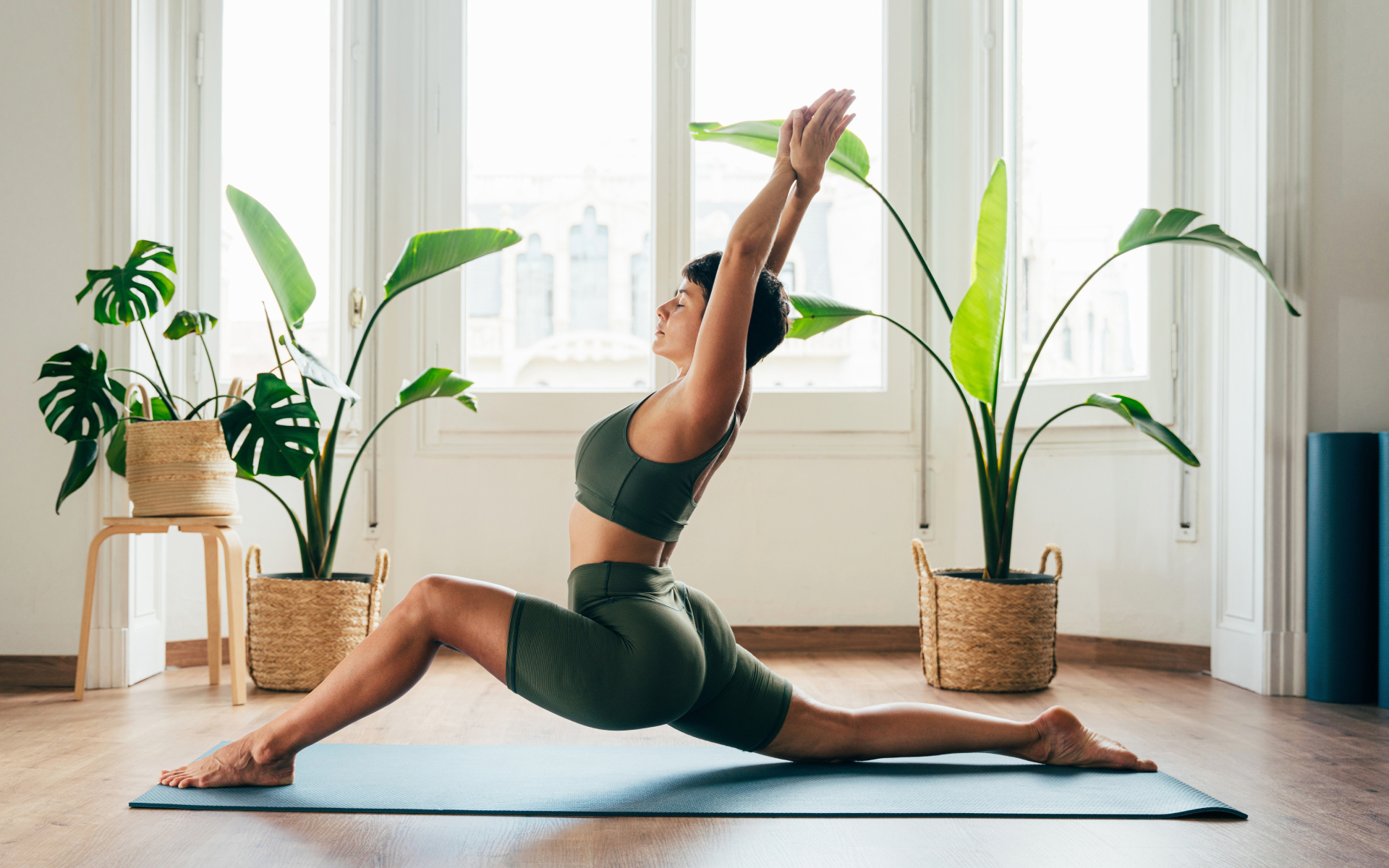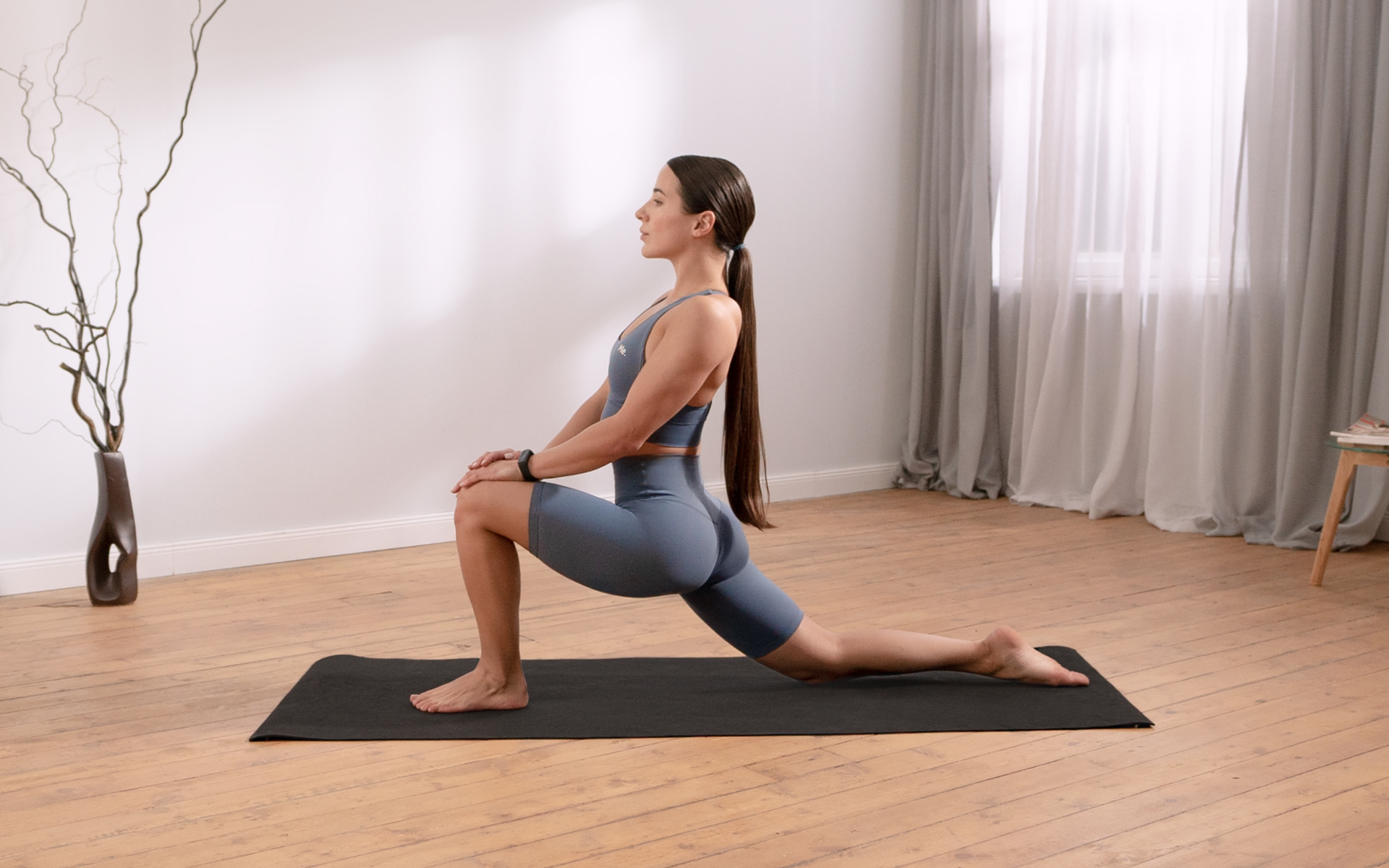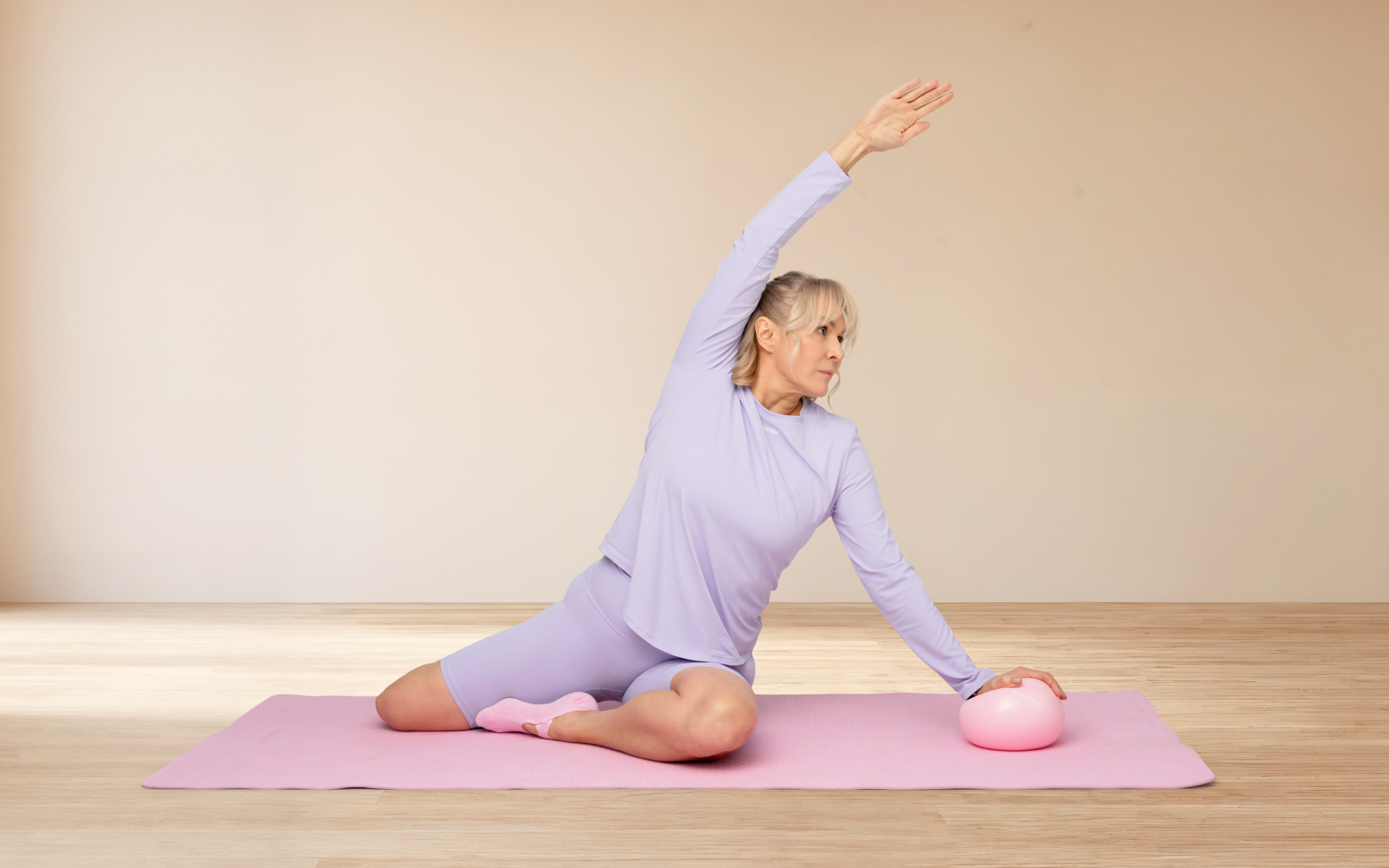Pilates has long been celebrated for its potential use to strengthen the body. It is based on a holistic approach that emphasizes both physical and mental health. By adding props and equipment in Pilates, one can increase the effectiveness of exercises. However, going through a Pilates session without investing in fancy tools is also quite possible.
Pilates has become known as one of the best exercises to shape a body. The intensity of these workouts could be tweaked according to one’s stamina and fitness level. Among all types, Wall Pilates double leg stretch is pretty popular in fitness circles. Many are now questioning how to perform these particular moves and, most importantly, whether or not Wall Pilates works.
If you have wanted to put some time into learning this famous exercise, you have landed on the right page. Below, you can find some basics about Wall Pilates double leg stretch and how to create a regime where you can get the most benefits.
What Is Wall Pilates Double Leg Stretch?
As the name suggests, Wall Pilates double leg stretch is an exercise where you lie on your back with your legs up against the wall. You form an L-shape on the wall while engaging your core muscles. Then, slowly lower your both legs toward the ground. Make sure that you keep your legs straight.
As you do this you should exhale and reach your arms overhead, extending them along the floor. Next, inhale and bring your legs back upwards while bringing your arms back to the sides. This exercise can strengthen your core and lower body. You may also feel your muscles lengthening, contributing to increased flexibility over time (6).
Sounds incredible, doesn’t it? Who knew a simple wall could bring many rewards, when used as a prop in a workout session?
What Is The Double Leg Stretch in Pilates Good For?
Wall Pilates double leg stretch benefits are one of the main reasons most people feel pulled towards it. The idea of staying in your home, not investing in high-end gyms or training sessions, and still improve your fitness encourages many people to explore this option.
Some other wall Pilates double leg stretch benefits include:
Improved Core Strength
This exercise targets the core muscles, like abdominals and deep stabilizers. Working on them can help to strengthen and tone the midsection (1).
Strengthens Lower Body
Lifting and lowering the buttocks and legs works on the thighs, glutes, and hips muscles. This may improve lower body strength (9).
Better Coordination and Control
Coordinating the movement of legs and arms while keeping your body stable requires a lot of strength and focus. When you perform Wall Pilates double leg stretches, you may notice an improvement in your overall body control.
Better Spinal Mobility
Moving your legs away from your body and then bringing them back can stretch and mobilize the spine. This can help reduce the usual stiffness and improve your flexibility (5).
If you wish to cinch your waist, tone up your bat wings, blast away the muffin top – our fitness app was created to cater to all your needs! BetterMe won’t give excess weight a chance!
Improved Posture
The absence of better posture causes joint and mobility problems among most people. Wall Pilates double leg stretch can help with these issues by strengthening the core muscles. This can eventually improve your alignment and reduce the risk of back pain (2).
There are several Wall Pilates double leg stretch variations that you can find there. The selection of exercises depends on your fitness level and other factors like weight and flexibility. For example, Wall Pilates double leg stretch for beginners will have different moves than the one for the pros.
Can I Do Leg Pilates Every Day?
Pilates is considered a low-impact exercise that isn’t too strenuous. Yet, it is not advised to perform leg Pilates daily. Here are some factors you should consider:
Muscle Recovery
Like any kind of exercise, Pilates involves challenging the muscles. Giving time for the muscles to repair is essential for their growth and better movement.
Balance and Variety
Understand how wall Pilates double leg stretch muscles work, and then learn how to include various exercise forms in your routine. Adding other exercises like cardio, upper body Pilates, and flexibility training can help to maintain overall balance (6).
Fitness Level
Your experience with Pilates and flexibility can help you determine if you should include wall Pilates double leg stretch in your routine. As for beginners, it is better to start slow. Gradually, you can increase the frequency and intensity of your workouts. Don’t forget to look for help from a certified Pilates trainer if you are a beginner.
It would be best if you performed 2 – 3 sessions of Pilates per week. If you start feeling stressed out and tired by doing leg Pilates, you should stop and get help from a certified trainer.
Is Pilates Good for Your Core?
Yes, Pilates has proven to be effective at building the core. In fact, strengthening the core is one of the primary objectives when performing Pilates.
But first, you should know that core muscles include the abdominals and deep stabilizing muscles of the pelvis and spine (7). Pilates has precise movements and breathing techniques. This means that it is only for you if you want more structured programs.
Pilates promotes functional fitness by targeting core muscles in various movements. This can translate to better performance in daily activities and sports. Besides using Pilates to strengthen your core, you can also look for more exercises to create a wholesome routine. Workouts like Wall Pilates for butt and Pilates for the back could help you be sure that you are targeting all muscle groups.
What Is The Double Leg Kick For in Pilates?
The double leg kick is an intermediate exercise in Pilates that helps with back and leg extension strengthening. This can benefit individuals who spend a lot of time sitting or those who have tightness in their back.
Like all Pilates exercises, the double leg kick emphasizes controlled and precise movements. These exercises are coordinated with the breathing patterns. Together, they foster a mind-body connection that can help you to become more mindful.
Here are some more purposes it serves:
- Strong back: By lifting your upper body and legs simultaneously, you can build strength and endurance in your back (9).
- Increased circulation: The rhythmic kicking can help increase circulation and blood flow (10). This can leave your body more energetic.
Double leg kick Pilates can do you a huge favor in your fitness regime. You should learn from the experts and craft a comprehensive routine. One that doesn’t take a toll on your strength doesn’t bore you or compel you to skip exercise altogether!
Read more: Wall Pilates for Butt: A Quick Guide for Beginners
Do Wall Pilates Exercises Work?
Obviously!
There is a reason why Pilates has suddenly gained so much popularity in the fitness circles. It has emerged as a great choice if you cannot lay flat on your back for long periods. Even if you are pregnant or injured, you can learn a bunch of Pilates movements to help with your mobility. Perhaps this is one of the reasons why wall exercise for seniors has become a favorite among elderly groups.
Given that you don’t need any tools or equipment to perform this exercise, you can do the exercise wherever you want. Using the wall as a Pilates prop, you can enhance your upper body strength and mobility. You can also target different muscle groups with different movements like Wall Pilates scissors and kneeling side kick Wall Pilates.
Just learn how to create a comprehensive routine that doesn’t become monotonous over time!
BetterMe is your fast-track ticket to a long-lasting weight loss! Tailor your fitness journey and maximize your results with just a couple of swipes!
How Do I Get Straight Legs in Pilates?
Getting straight legs in Pilates requires a perfect combination of strength and alignment. You can get straight legs by focusing on the following steps:
- Work on your alignment
- Use props for support
- Engage different muscle groups
- Practice mindful movements
- Be patient and consistent
By following these tips, you can work towards achieving straighter legs and improve your physique. Go for low-impact and gentle movements on days when you feel like giving up. A gradual but persistent Pilates practice can help you get closer to your fitness milestones!
Read more: Does Wall Pilates Work? Discover Why Wall Pilates is the New FitTok Hype
FAQs
What muscles do Pilates leg lifts work?
Pilates leg lifts target muscles like quadriceps, hamstrings, abdominals, and hip flexors. You should create a routine with multiple muscle groups to work your legs in Pilates. Beginners can always get help from professionals or online fitness groups.
What is the purpose of the single-leg kick in Pilates?
The single-leg kick in Pilates is a one-legged butt kick. It strengthens your lower body muscles, like your butt, hamstrings, and calves, and also makes your core strong to keep you balanced. This means, it’s good for your legs and your tummy!
What are the benefits of Pilates leg circles?
Leg circles in Pilates are like magic circles for your whole body. They strengthen and bend your legs, help your core get tight and steady, and improve your balance and coordination. Doing them regularly will like giving your body superpowers – it feels good and makes you move better!
The Bottom Line
Wall Pilates, like all forms of Pilates, is a versatile exercise. All the perks that we discussed about wall Pilates double leg stretch convince us that this exercise can help us deal with physical problems, become more active, and feel better mentally. Initially, it might be difficult to make correct form and practice wall Pilates double leg stretches consistently. With time and persistence, you can become proficient and start witnessing the benefits steering your way!
DISCLAIMER:
This article is intended for general informational purposes only and does not serve to address individual circumstances. It is not a substitute for professional advice or help and should not be relied on for making any kind of decision-making. Any action taken as a direct or indirect result of the information in this article is entirely at your own risk and is your sole responsibility.
BetterMe, its content staff, and its medical advisors accept no responsibility for inaccuracies, errors, misstatements, inconsistencies, or omissions and specifically disclaim any liability, loss or risk, personal, professional or otherwise, which may be incurred as a consequence, directly or indirectly, of the use and/or application of any content.
You should always seek the advice of your physician or other qualified health provider with any questions you may have regarding a medical condition or your specific situation. Never disregard professional medical advice or delay seeking it because of BetterMe content. If you suspect or think you may have a medical emergency, call your doctor.
SOURCES:
- A Comprehensive Guide to Engaging Your Core (2022, healthline.com)
- A Systematic Review of the Effects of Exercise and Physical Activity on Non-Specific Chronic Low Back Pain (2016, ncbi.nlm.nih.gov)
- Core Strength & Balance (2017, upstate.edu)
- Double Leg Stretch (n.d., pilatesclub.de)
- Flexibility (n.d., physio-pedia.com)
- How to Engage Your Core (2021, verywellfit.com)
- Pilates for back pain: 8 effective Pilates back exercises you can do at home! (n.d., complete-pilates.co.uk)
- Wall Pilates: Quick-and-Simple to Lose Weight and Stay Healthy (n.d., everand.com)
- Wall Pilates for Butt: A Quick Guide for Beginners (2024, betterme.world)
